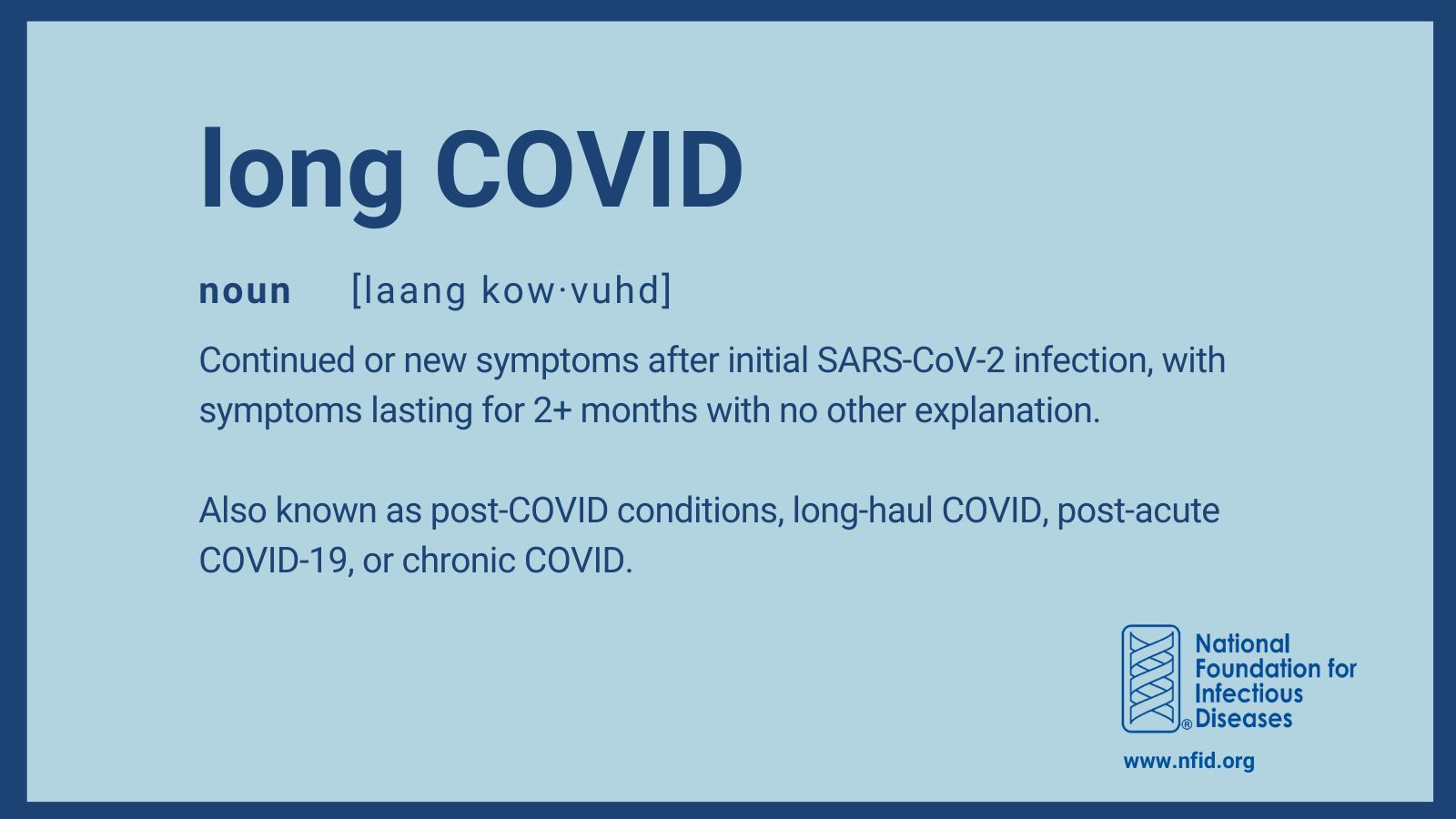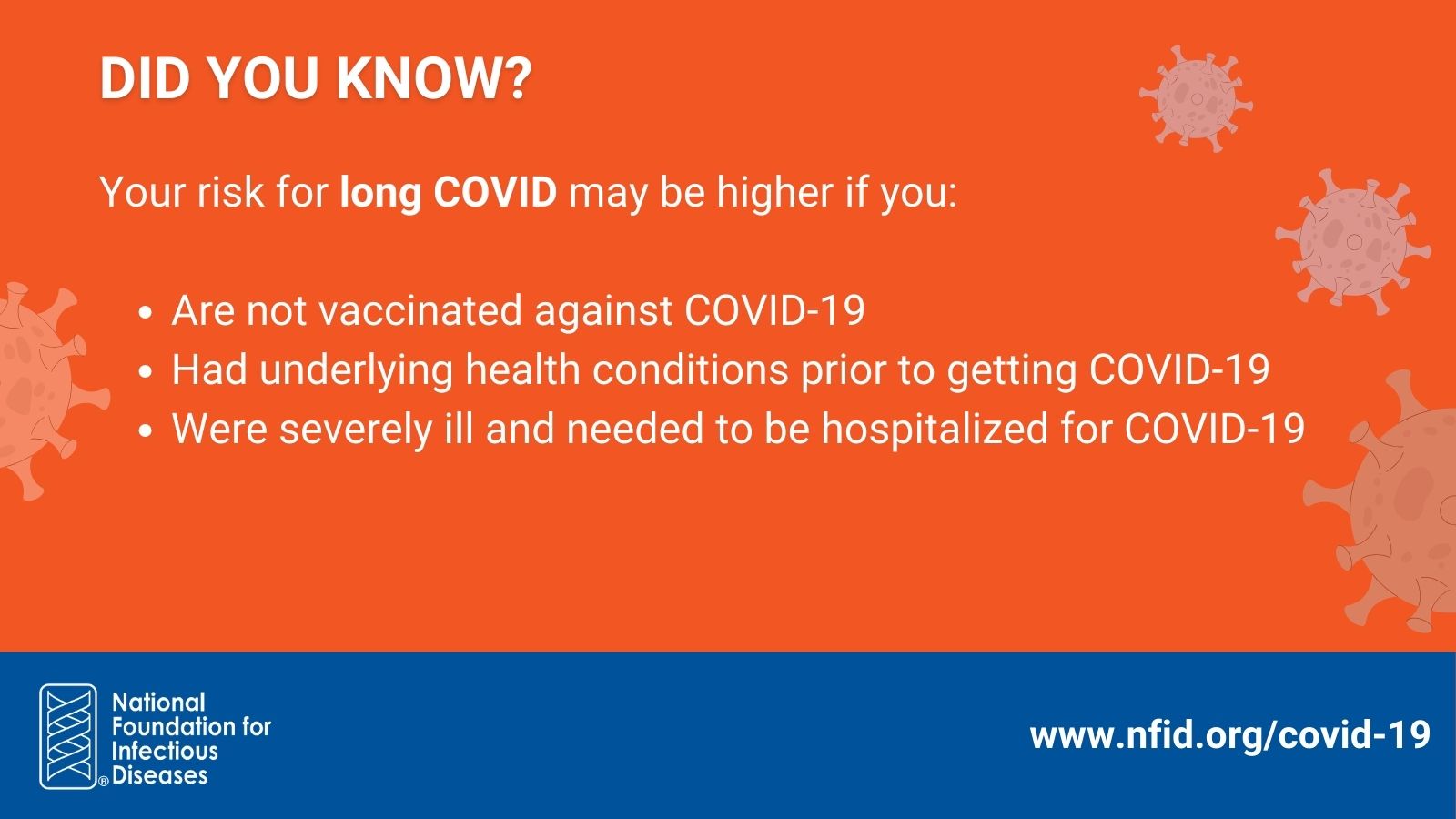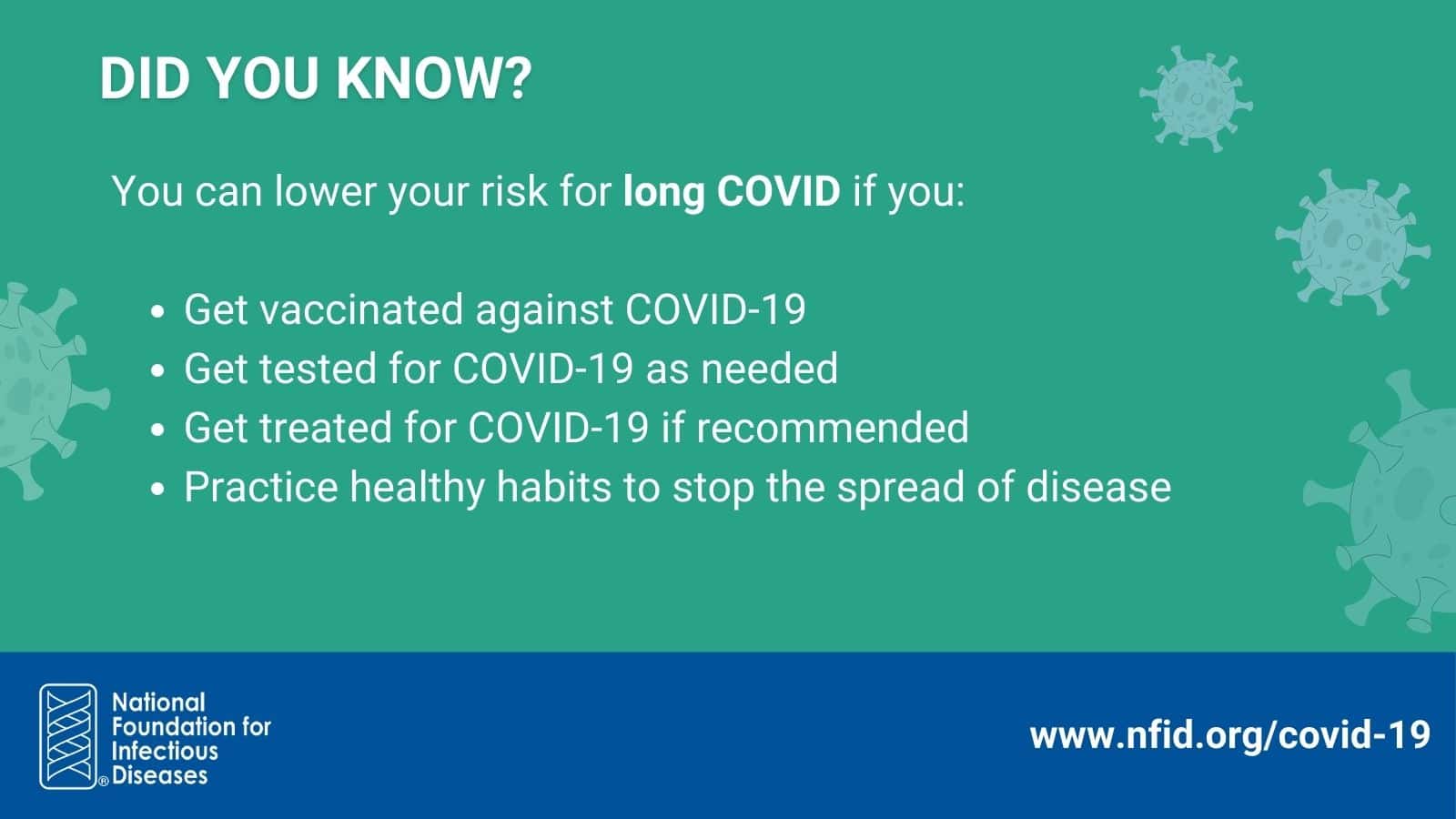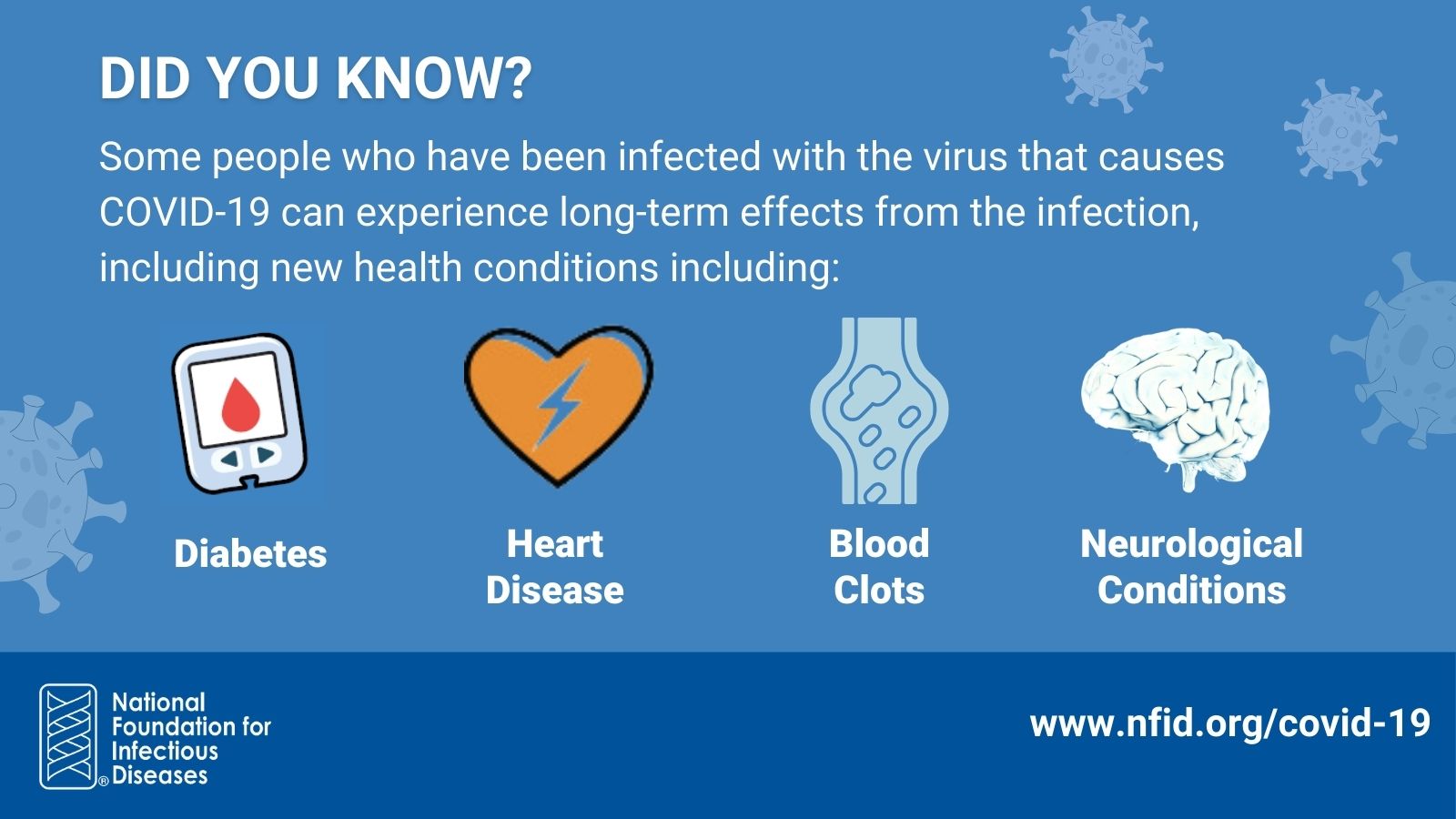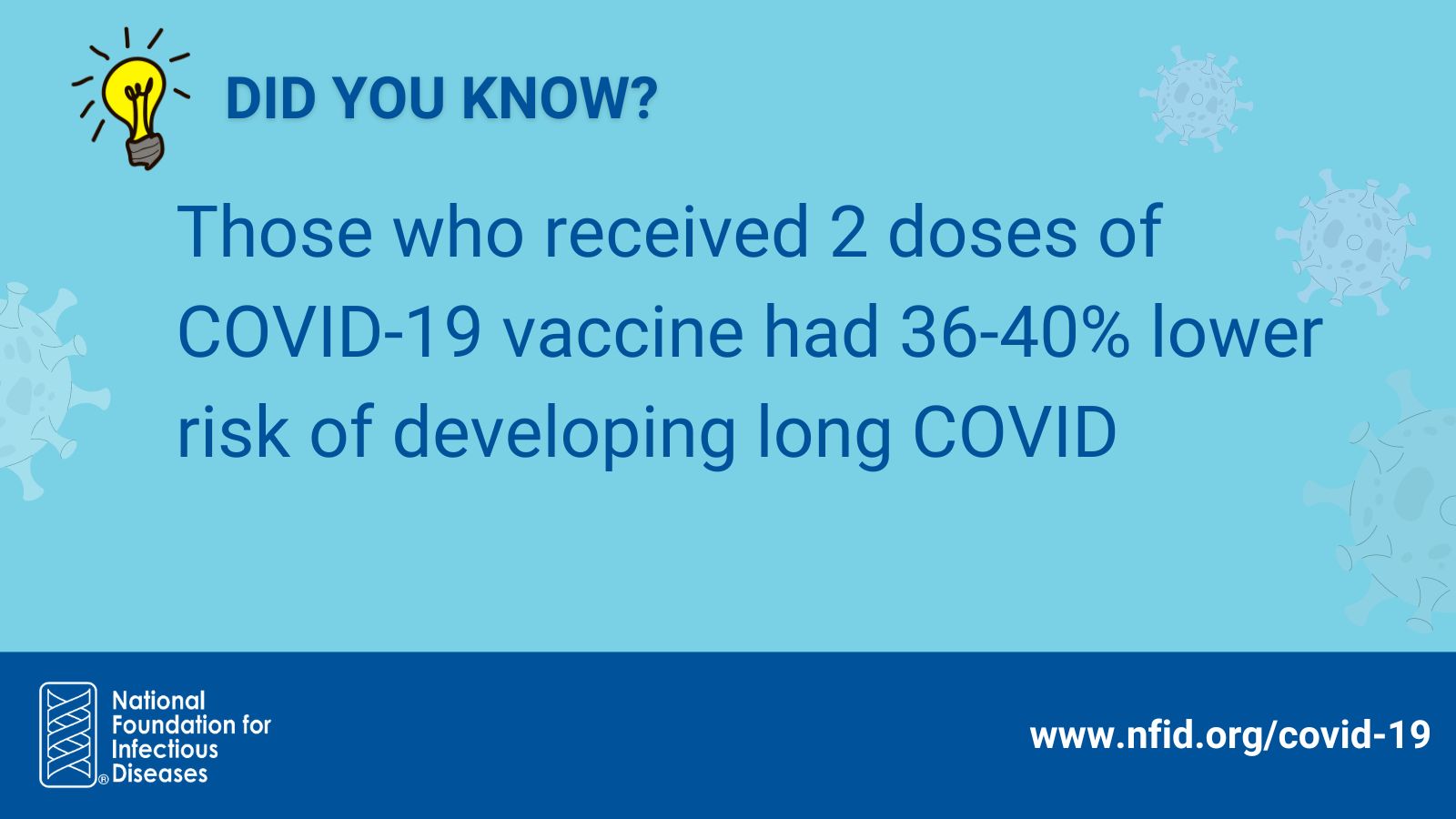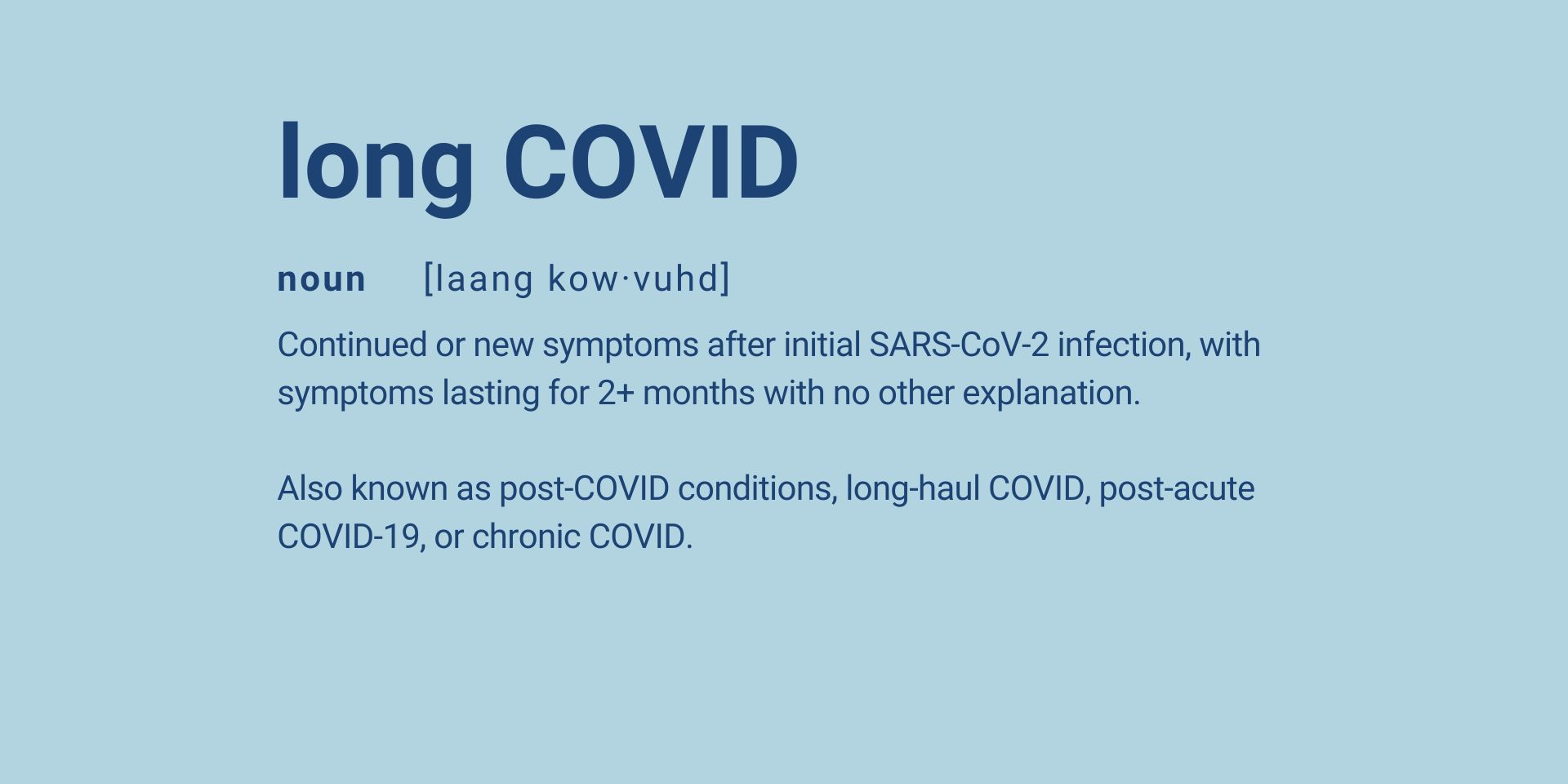
Long COVID includes a wide range of long-term health issues that can occur in people who have been infected with SARS-CoV-2, the virus that causes COVID-19.
Long COVID is more likely to develop in people who had severe COVID-19 illness, but anyone who has had a COVID-19 infection can develop long COVID. Each time a person is infected with SARS-CoV-2, there is a risk of developing long COVID.
Some people who have had COVID-19 may be more likely to develop new health conditions such as diabetes, heart disease, blood clots, or conditions involving the brain and nervous system.
Share these graphics/sample social media posts to help raise awareness about long COVID and tag NFID channels (https://linktr.ee/nfid):
- #DYK: You can lower your risk for long COVID if you #GetVaccinated against COVID-19? Learn more: www.nfid.org/covid-19
- Anyone who has had a COVID-19 infection can develop long COVID. Learn how to help lower your risk: www.nfid.org/covid-19
- The best way to prevent long COVID is to protect yourself from getting infected. #GetVaccinated, get tested, and get treated to help #StopTheSpread of #COVID-19
Related Resources

What Is an Antiviral?
Overview of antivirals—what they are, how they work, and what diseases they help treat
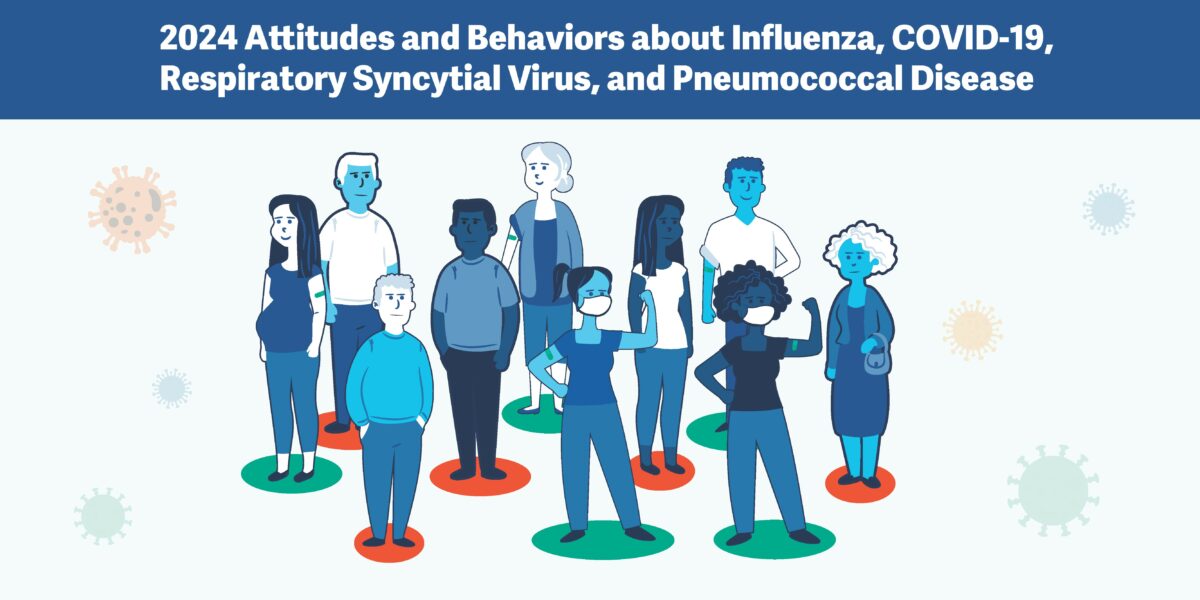
2024 National Survey: Attitudes and Behaviors about Influenza, COVID-19, Respiratory Syncytial Virus, and Pneumococcal Disease
2024 national survey on flu, RSV, COVID-19, and pneumococcal disease

Updated Recommendations for Respiratory Season
In this episode, NFID experts discuss updated recommendations to help protect against COVID-19, influenza (flu), respiratory syncytial virus (RSV), and pneumococcal disease …

